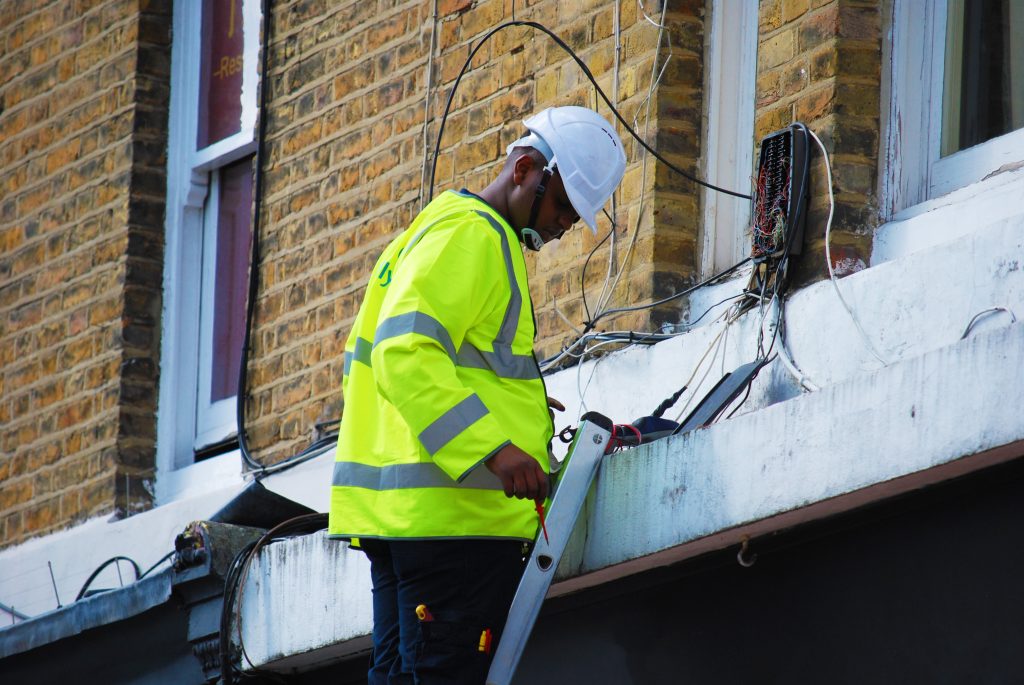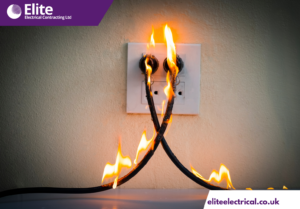Meeting the Demand
In the heart of one of the world’s most vibrant cities, the electric contracting industry in Central London stands as a pivotal component of its ongoing growth and development. This sector is vital not only for the maintenance of existing infrastructure but also for powering the city’s future, through both small-scale projects and large, commercial ventures. Central London, known for its dense population and continuous development, presents a unique set of challenges and opportunities for electrical contractors. The demand for electrical services is significantly high, driven by the city’s relentless pace of construction, renovation, and technological upgrade.
The electric contracting industry in Central London is characterised by a dynamic landscape of innovation and adherence to stringent regulations, ensuring that all electrical installations and services meet the highest standards of safety and efficiency. Contractors operating in this area must navigate a complex environment, where space is at a premium and historical preservation is paramount. Despite these challenges, the industry thrives, supported by a network of skilled professionals who are adept at finding creative solutions to the most daunting of tasks.
Fueling Sustainable Development
This bustling demand is primarily fueled by the city’s commitment to sustainability and modernization, pushing the boundaries of traditional electrical contracting. Projects often involve the integration of eco-friendly technologies, smart systems, and energy-efficient solutions, aiming to reduce the carbon footprint of one of the world’s leading financial hubs. The role of electrical contractors has never been more critical, as they lay the groundwork for a sustainable and technologically advanced urban future.
In summary, the electric contracting industry in Central London is a testament to the city’s forward-thinking ethos and its unyielding drive towards progress. The high demand for electrical services, coupled with the challenges of operating in such a dynamic environment, underscores the industry’s crucial role in shaping the capital’s future, making it a vibrant and essential part of London’s economy and infrastructure development.
Main Challenges
Limited Space for Installations
Operating in Central London, electric contractors face the acute challenge of limited space. This constraint demands innovative solutions to accommodate necessary equipment within the confines of compact areas. The density of the urban landscape, coupled with the premium on available space, requires contractors to devise creative and efficient installation strategies. This often involves the use of cutting-edge technology and compact, modular systems that can be integrated seamlessly into restricted environments, ensuring that even the most confined spaces are optimally utilised for electrical installations.
Historical Building Constraints
Central London is home to numerous historical landmarks, each with its own set of preservation requirements. Working within these buildings presents a unique set of challenges for electric contractors. They must design systems that are not only functional but also compliant with stringent safety standards, all while preserving the integrity and aesthetics of the architectural heritage. This necessitates a deep understanding of both the historical context and the latest in electrical system design, blending tradition with innovation to maintain the historical character of these buildings.
Dense Population and Urban Environment
The dense population and bustling urban environment of Central London add another layer of complexity to electrical projects. Contractors must execute their work efficiently and swiftly to minimise disruption to daily life. This entails meticulous planning and coordination to ensure that electrical installations and maintenance activities are carried out with minimal impact on residents, businesses, and commuters. The ability to work within tight schedules, often during off-peak hours, is crucial in keeping the city’s vibrant pulse uninterrupted.
Regulatory and Safety Standards
The regulatory framework governing electrical installations in London is both intricate and ever-evolving. Electric contractors must navigate a maze of regulations, ensuring their work adheres to the latest safety standards and legal requirements. This challenge is compounded by the city’s commitment to technological advancement and environmental sustainability, which frequently introduces new guidelines and standards. Staying abreast of these changes is vital for contractors to ensure compliance and maintain the highest levels of safety and efficacy in their projects.
Environmental and Sustainability Concerns
London’s commitment to reducing its carbon footprint significantly impacts the electric contracting industry. Contractors are increasingly required to incorporate sustainable practices and energy-efficient technologies into their projects. This shift towards sustainability demands a reevaluation of traditional electrical solutions, favouring the adoption of renewable energy sources, smart grids, and energy-saving installations. Contractors must balance the city’s environmental goals with the practicalities of electrical design, installation, and maintenance, ensuring that each project contributes to a greener, more sustainable urban environment.
These challenges underscore the complexity of operating within Central London’s unique landscape. However, they also present opportunities for innovation, sustainability, and the continued evolution of the electric contracting industry, ensuring that it remains at the forefront of technological and environmental advancements.
Case Studies and Examples
Tackling Energy Challenges with Innovative Solutions: UK Power Networks Services
UK Power Networks Services exemplifies how innovative solutions can address the complex energy challenges of today’s urban environments. By focusing on technologically advanced solutions, they deliver outcomes that enhance resilience, cost efficiency, and sustainability for their clients. Their approach involves leveraging the latest in energy technology to create systems that not only meet current demands but are also scalable for future needs. This strategic focus on innovation enables UK Power Networks Services to provide reliable and sustainable energy solutions that support the infrastructure of Central London and beyond.
Installation of EV Charging Hubs: A Step Towards Sustainable Urban Mobility
A notable project that highlights the industry’s response to the challenges of electric contracting in Central London is the installation of Electric Vehicle (EV) charging hubs. For instance, the collaboration with bp pulse to install 22 50kW rapid electric vehicle chargers beneath Park Lane showcases a practical and impactful solution. This project significantly contributes to reducing emissions in the capital by facilitating the electrification of local taxis, private hire vehicles, and fleets. It underscores the shift towards sustainable urban mobility, demonstrating how electrical contractors are playing a crucial role in enabling the transition to greener transportation options.
These case studies illustrate the electric contracting industry’s commitment to addressing the unique challenges of working in Central London. Through innovative approaches and sustainable solutions, contractors like UK Power Networks Services are setting new standards in resilience, efficiency, and environmental responsibility. These examples serve as a testament to the industry’s ability to adapt and thrive, ensuring that London’s electric infrastructure supports the city’s dynamic growth and sustainability goals.
Impact of Environmental Challenges on London
London faces a multitude of environmental challenges that have significant implications for its residents and infrastructure. Air quality issues stand at the forefront, with emissions from vehicles and industrial activities contributing to pollution levels that often exceed healthy standards. This not only affects the health of the population but also places a burden on the city’s healthcare services. Food waste represents another critical challenge, with considerable amounts of food discarded unnecessarily, contributing to greenhouse gas emissions and inefficient use of resources. Addressing these environmental concerns requires the implementation of sustainable policies, such as promoting cleaner transportation options, enhancing waste management practices, and encouraging the reduction of food waste through public awareness and corporate responsibility initiatives.
Employment and Urban Challenges
The employment rate and patterns of urban decline significantly impact the demand and delivery of electrical contracting services in London. Areas experiencing urban decline often see a decreased investment in infrastructure, which can lead to reduced opportunities for electrical contracting. Conversely, the regeneration of such areas can spur a surge in demand for these services as part of broader redevelopment efforts. Employment rates also play a role, influencing both the availability of skilled labour for the industry and the economic health of the community, which affects investment in both new projects and the upkeep of existing electrical infrastructure.
Industry Perspectives
Leading electrical contractors, such as Moyne London Ltd, provide valuable insights into delivering high-quality services amidst the challenges presented by London’s unique environment. Emphasising the importance of adaptability, these industry professionals highlight how staying abreast of the latest technological advancements and regulatory changes is crucial for success. Companies like Moyne London Ltd pride themselves on their ability to navigate the complexities of working in a densely populated and historically rich city. They stress the importance of innovative problem-solving and the adoption of sustainable practices to meet the evolving demands of the market and regulatory environment. Through a commitment to excellence and a focus on sustainable solutions, electrical contractors play a vital role in shaping London’s infrastructure for the better.
By addressing environmental challenges, adapting to the impacts of employment rates and urban decline, and leveraging industry expertise, London can continue to progress towards a more sustainable and resilient future. The perspectives and initiatives of electrical contractors are integral to this journey, underscoring the importance of collaboration and innovation in overcoming the obstacles faced by the city.
Conclusion
The electrical contracting industry in Central London exemplifies resilience and adaptability in the face of unique challenges. Despite constraints such as limited space, historical preservation, dense urban environments, stringent regulatory frameworks, and pressing environmental concerns, the sector continues to thrive. It showcases an impressive capacity for innovation, leveraging advanced technologies and sustainable practices to meet the demands of a rapidly evolving cityscape. The industry’s ability to navigate these complexities not only ensures the efficient delivery of services but also contributes significantly to the city’s sustainability goals.
Opportunities for innovation and sustainability are abundant, highlighting the industry’s crucial role in shaping a greener, more efficient future for London. The shift towards renewable energy sources, the integration of smart technologies, and the emphasis on reducing the carbon footprint are just a few examples of how the sector is adapting to meet contemporary needs. These efforts are essential in supporting London’s vision of becoming a more sustainable and resilient city.
Read More
For those interested in delving deeper into the subject matter, a wealth of resources is available. Industry publications, case studies from leading contractors, and reports on sustainability initiatives offer valuable insights. Websites such as the UK Power Networks Services and professional associations for electrical contractors provide up-to-date information on industry trends, technological advancements, and regulatory changes. Engaging with these resources can enhance understanding and appreciation of the electrical contracting industry’s vital role in London’s ongoing development and environmental stewardship.
By exploring further, stakeholders can stay informed about the latest innovations in electrical contracting, contributing to informed discussions and decisions that shape the industry’s future in Central London and beyond.
Connect with Elite Electrical Contracting Ltd
For those interested in engaging with the forefront of electrical contracting innovation and sustainability in Central London, Elite Electrical Contracting Ltd invites you to reach out. Whether your needs encompass comprehensive electrical services, sustainable energy solutions, or custom projects, our dedicated team is ready to assist.
Get in Touch:
- Fill Out Our Contact Form: For a prompt and detailed response to your queries, please use the contact form available on our website. Our staff is committed to getting back to you as swiftly as possible.
- Direct Contact Options: If you prefer a more direct approach or wish to discuss your needs in more detail, our contact details are as follows:
- Address: 30 Upper Mulgrave Road, Sutton, Surrey, SM2 7BD
- Phone: 020 8644 3200
- Fax: 020 8644 3300
- Email: [email protected]
Elite Electrical Contracting Ltd is at your service for expert advice, project consultation, and premium electrical solutions. We are keen to hear from you, whether you’re planning your next project or simply seeking insights into sustainable electrical practices. Visit our website or reach out directly to explore how we can support your ambitions for a brighter, more efficient future.
Author Bio
John Smith is an esteemed author and industry expert with over two decades of experience in the electrical contracting sector. With a rich background in engineering and sustainable development, John has dedicated his career to advancing the electrical contracting industry in the UK. His expertise spans a broad range of topics, including innovative electrical solutions, sustainable energy practices, and the integration of cutting-edge technologies in urban infrastructure projects.
John’s commitment to excellence is evident in his contributions to numerous industry publications, where he provides valuable insights into the challenges and opportunities facing electrical contractors today. A staunch advocate for environmental stewardship, he actively promotes the adoption of green technologies and practices within the sector, aiming to reduce carbon footprints and enhance energy efficiency across urban developments.
Holding a Master’s degree in Electrical Engineering from a prestigious UK university, John combines theoretical knowledge with practical experience, making him a respected voice in the industry. His work is guided by a belief in the power of innovation and sustainability to drive positive change.
John’s vision for the future of electrical contracting in the UK is one where the industry plays a pivotal role in creating sustainable, efficient, and resilient urban environments. Through his writing and professional endeavours, he seeks to inspire others to embrace new technologies and sustainable practices, contributing to the overall well-being and progress of communities across the country.



